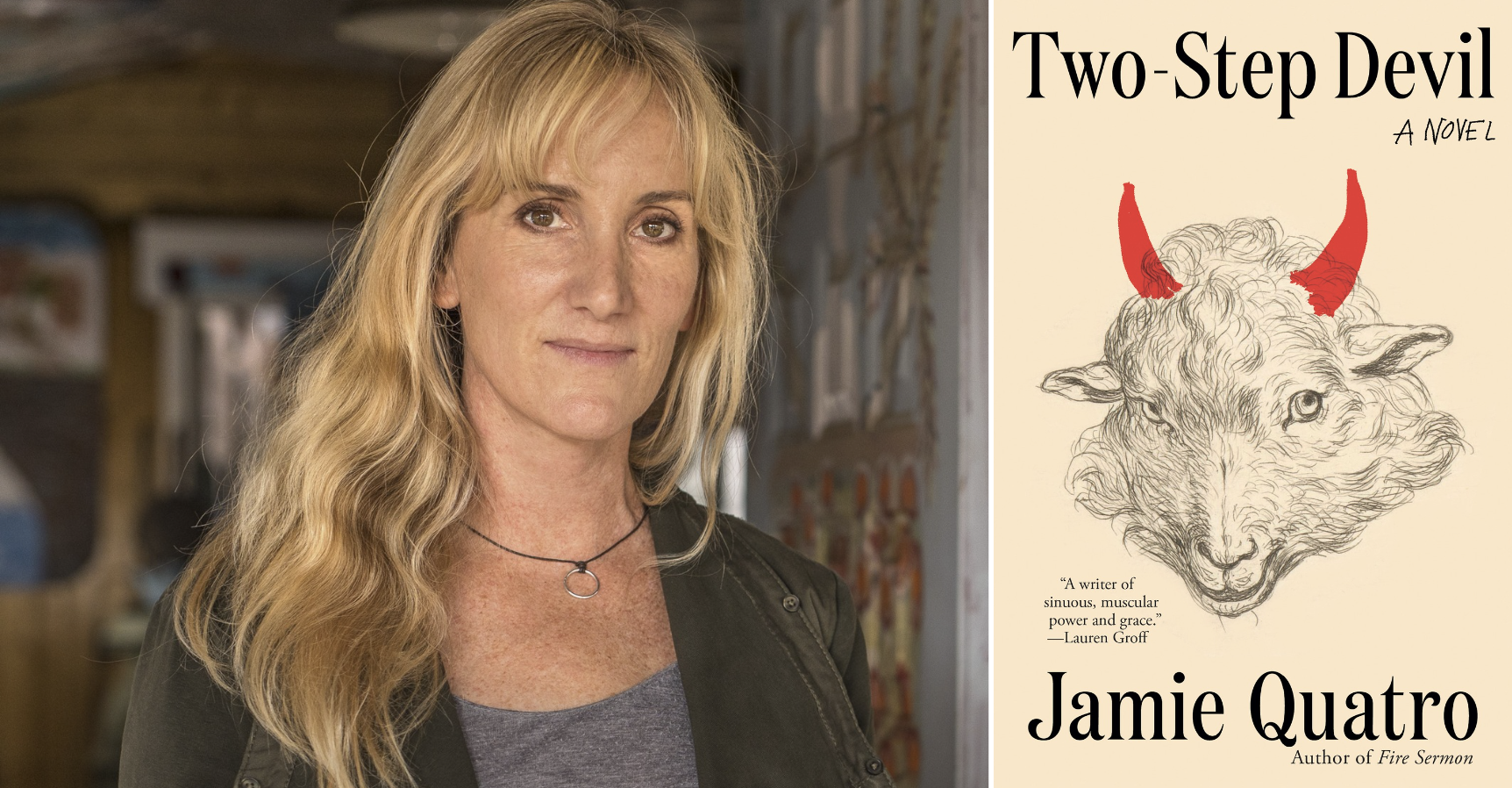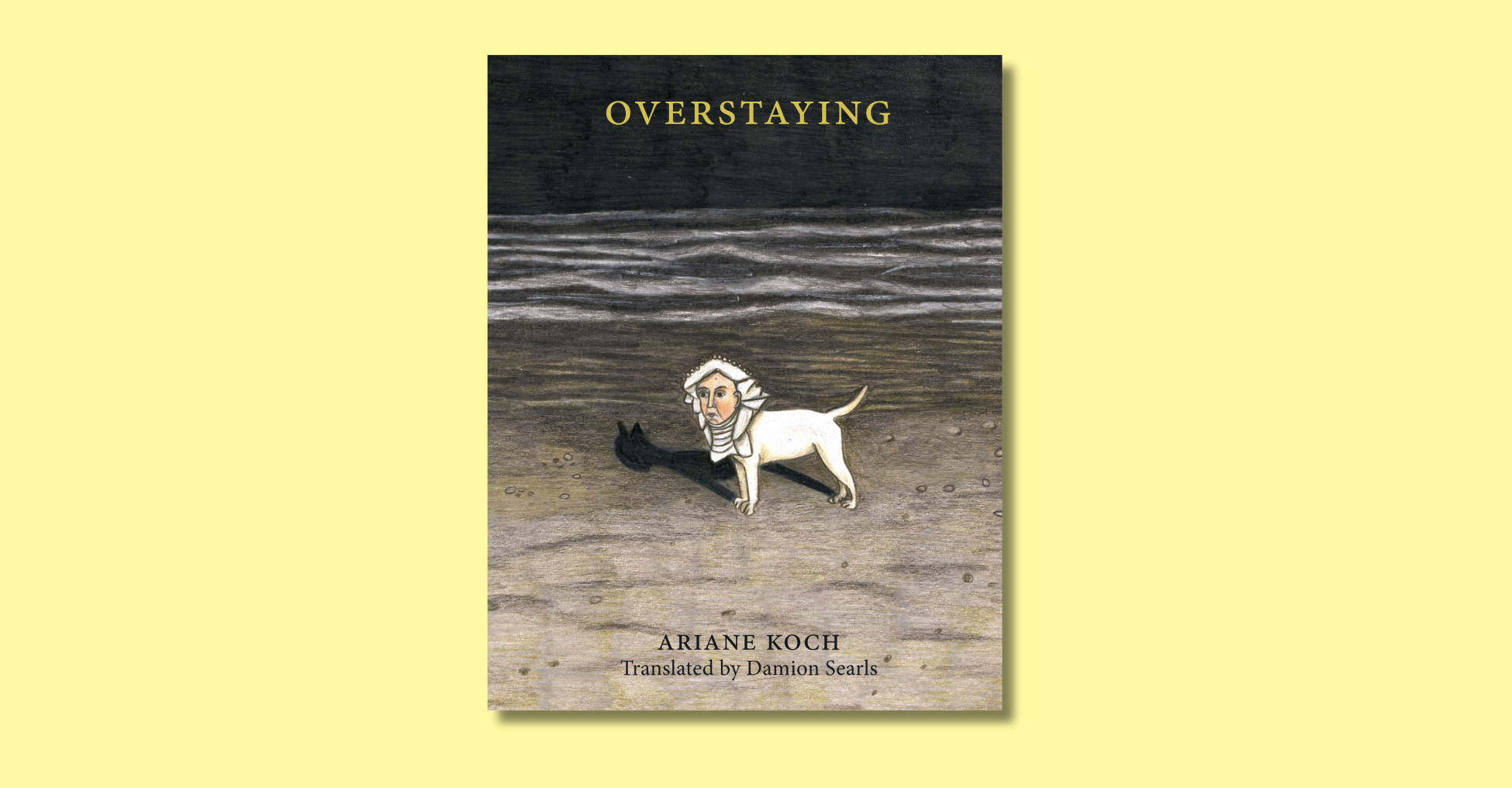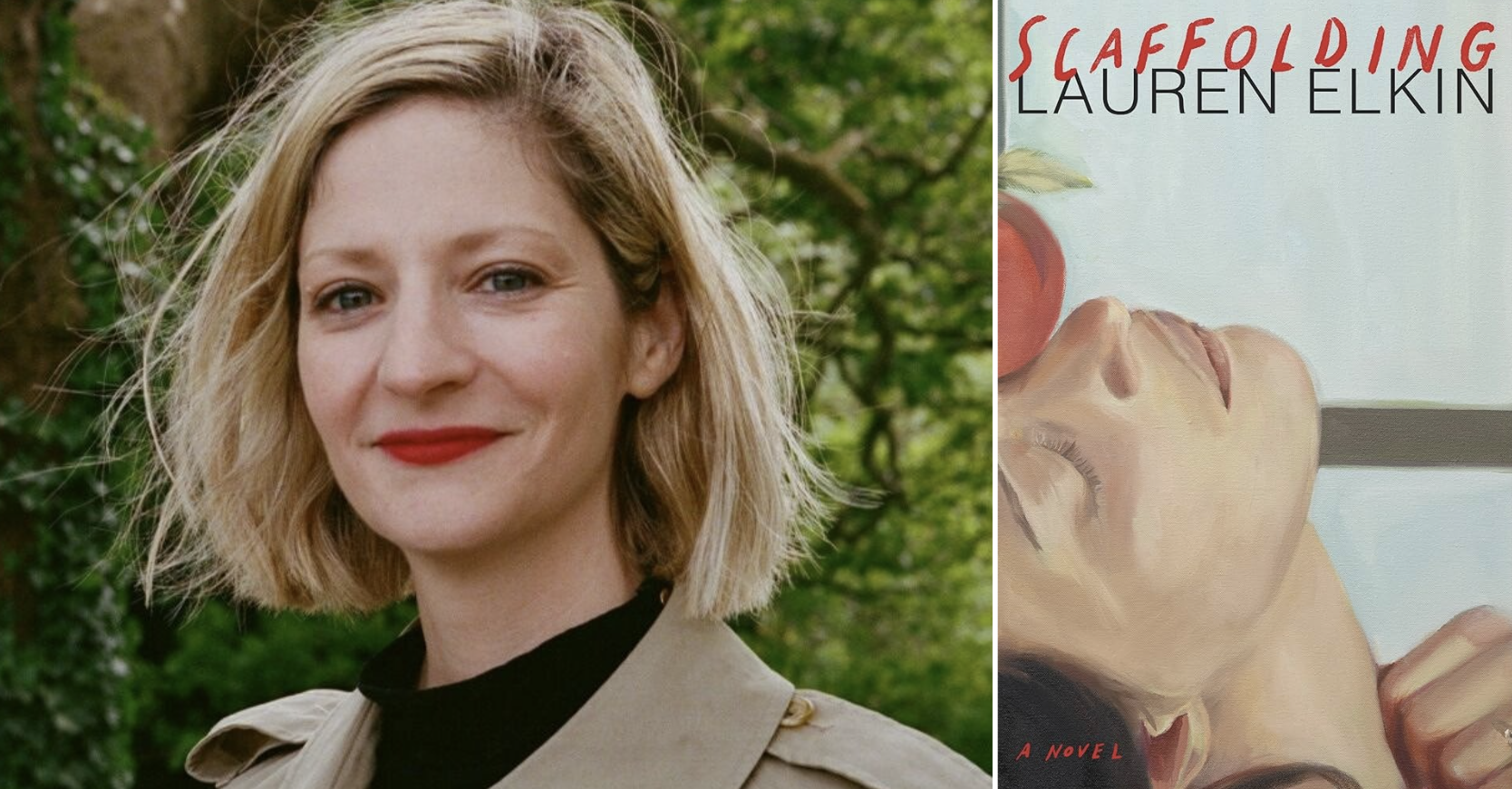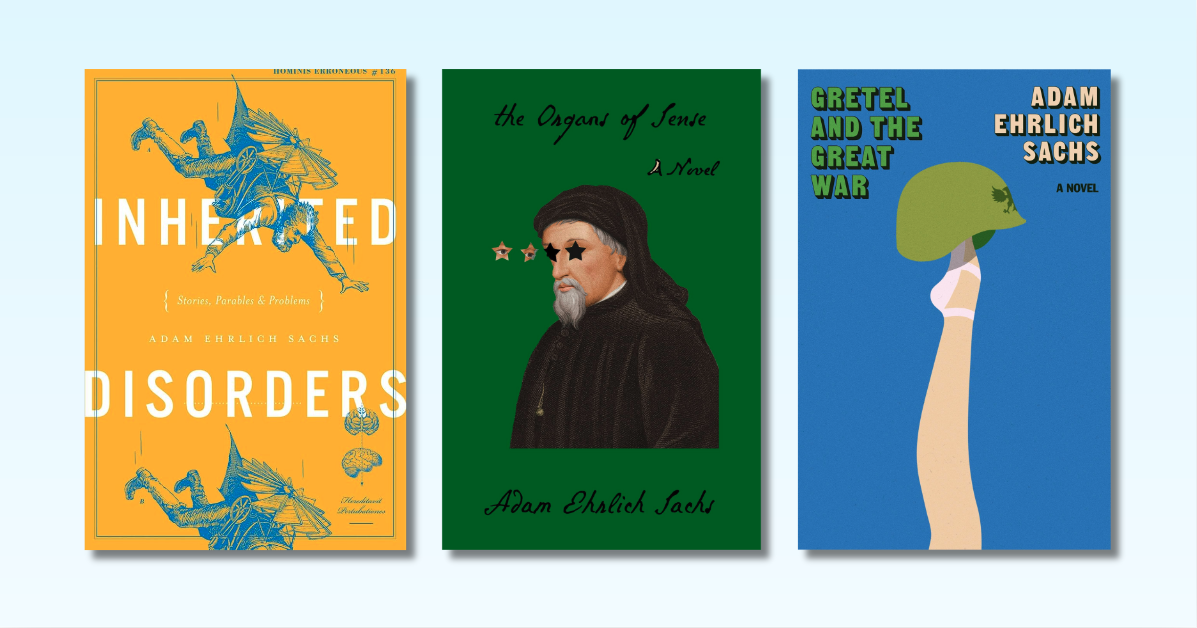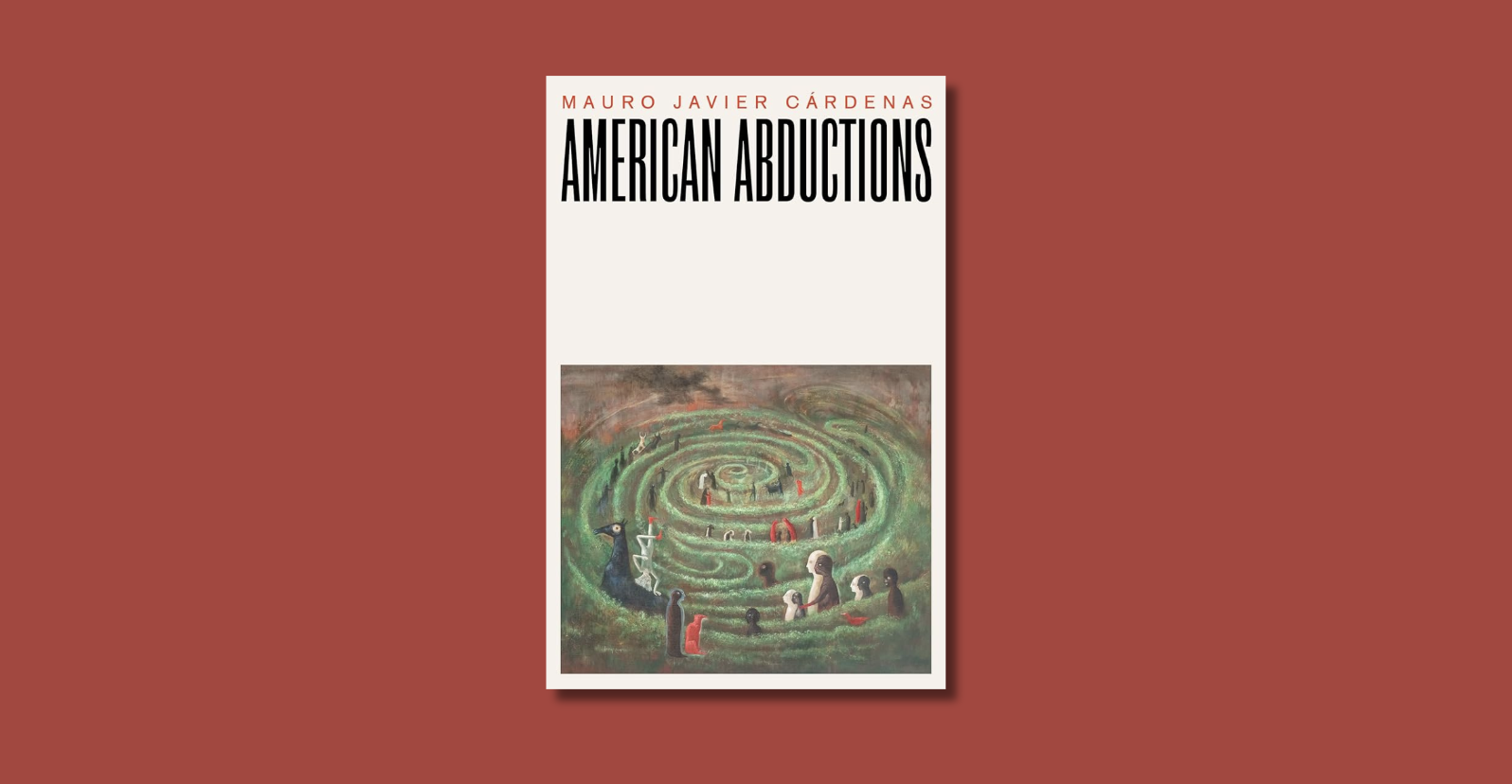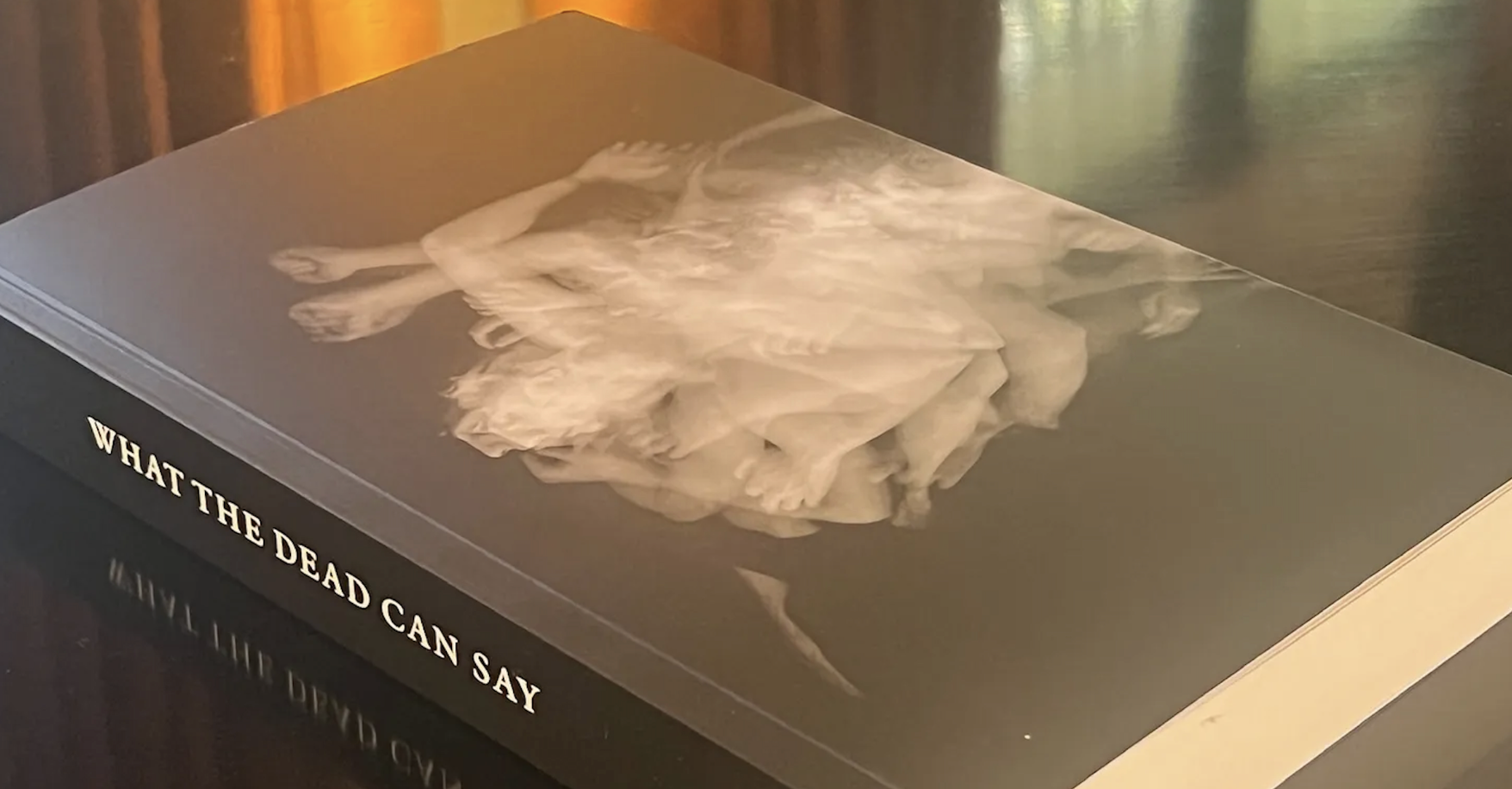Anelise Chen and I first met at a bar in New Haven, Connecticut, where we’d each worked. “You were getting marrow ‘to go,’” she wrote, “which I thought was the craziest thing.”
Chen’s careful observation of the absurd ripples throughout her debut novel, So Many Olympic Exertions (Kaya Press, 2017). The narrator, Athena Chen, is a Ph.D. candidate ostensibly at work on a dissertation concerning Olympic athletes, but she spends much of the novel sliding into unfunded, perpetual-ABD status. Athena is a feverishly avoidant narrator: She’ll almost acknowledge her own emotions, only to redirect with an obsessive digression into Andre Agassi’s childhood or Diana Nyad’s long-distance swims. Athena begins to describe herself as though she’s one of her research subjects: “She can’t fake it anymore. She’ll have to do something or do nothing and keep going forward blindly.”
Currently a finalist for the VCU Cabell First Novelist Award, Anelise Chen has written for The New York Times, Gawker, Vice, Bomb, The New Republic, and The Paris Review Daily. She teaches creative writing at Columbia University. We spoke over the phone.
The Millions: So Many Olympic Exertions is a novel of distraction and dissociation. Athena is preoccupied with her own body, but she’s also studying other people’s bodies. How do you craft a voice that navigates these tensions?
Anelise Chen: That was really hard. I didn’t realize the disconnect between being so in my head and having such a sort of locked-in narrator who was attempting to write about the body: She completely doesn’t have any access to her body. At the same time, she’s trying to think about it.
That problem didn’t occur to me until many years into the writing. I was going through a difficult time and I was going to therapy, and of course they tell you to exercise. It’s actually very cheesy, but then I just started moving my body a little bit more and paying attention to it.
I do remember in the first drafts of it someone in my workshop just refused to read it. He said it made him feel claustrophobic and crazy; it was suffocating and uncomfortable because we never got to leave the narrator’s head. That was a complete revelation for me. Prior to that I hadn’t considered that this was what I was doing: trapping the reader in an anxious person’s head. But I think that is what is happening to the narrator. She’s sort of just locked into her head and she can’t escape and she can’t access her body.
I did go through a phase where I felt that writers had not properly addressed the body as a subject; that we weren’t very good at it. So I was like, who has written about the body before?
 In Roland Barthes’ Mythologies, Barthes writes about these two brothers. One of them is an intellectual, and so he’s not as good as his brother, who’s just this, like, maniacal bicycle demon. So [Barthes] sort of puzzles over why the intellectual one can’t be as good, what it is that’s preventing it. And it’s the mind: The mind is an impediment. He thinks too much. There’s this very old René Descartes, or Cartesian, dualism, the separation of mind and body.
In Roland Barthes’ Mythologies, Barthes writes about these two brothers. One of them is an intellectual, and so he’s not as good as his brother, who’s just this, like, maniacal bicycle demon. So [Barthes] sort of puzzles over why the intellectual one can’t be as good, what it is that’s preventing it. And it’s the mind: The mind is an impediment. He thinks too much. There’s this very old René Descartes, or Cartesian, dualism, the separation of mind and body.
TM: On what draft did you realize that you were writing about the body?
AC: I wanted to write about the body from the beginning because I wanted to write about sports, but I didn’t realize right away that I was disconnected from my body and didn’t know how to access my body. I was just curious about it, and I was just wondering, just as I was watching the Winter Olympics, “How do they have so much conviction?” They have so much conviction in their bodies, so much belief and confidence they can just do these things! All of their intentions channel through their bodies, and how does that happen? So I really wanted to investigate that, initially.
TM: The book is apprehending the physical through a form that’s inherently intellectual, which creates some tension, too, between form and content.
AC: Form and content, right. I mean, that is the problem with every book, and with this book, the content is very much just thought and the movement of thought, and that is different from the movement of the body. Movement of body is just like, how we move around in space, and that’s where plot comes from, that’s where drama comes from, because we bump into each other, we interact, that’s drama—and movement of thought doesn’t really have that. When people say things are claustrophobic and boring, that’s what they’re talking about. So it’s like, how do you sort of fuse those two things together?
So I puzzled over this and I thought, well, I have to capture somehow the movement of her day to day, how she’s moving her body around in life—the book might feel very static, but she’s actually going about her day. She has these real routines. So I started reading a lot of journals, journals of writers and artists, or just any kind of journal, and sort of recording, like, how organic structure arises from just a life. I mean, arguably, a journal has no form—just organic documentation—but actually, you do see these ebbs and flows, and you do see these sort of climaxes in action, and especially with Virginia Woolf‘s diaries, you can really tell there are these lapses, and she has attacks and is ill. Her entries are like, very far apart, and the prose isn’t as vibrant. There are these natural waves in every life.
So this isn’t a journal, but I tried to mimic that in form, and I think it fits it to use that to create movement.
TM: Yeah, there’s something very balletic in the structure. You have these very short, staccato interludes of very tight paragraphs, and then you’ll have a long, sweeping passage. And often it’s either Athena discussing something that’s quite painful for her or avoiding it entirely with a very long discussion of a particular athlete that she’s become obsessed with.
AC: Yeah, so that’s a question of patterning, too, and so I tried to really be physical in a way and tried to put myself in Athena, in her life, experiencing how she would experience, and of course I have to invent things that happen to her, so it’s like, well, if a person were in such a situation, what would be captivating to them? What would they be thinking about? What would they be feeling in their body?
Sometimes you go to work out, and you show up and just have nothing. You can’t run or whatever, but sometimes you can just go for miles. Mental attention is the same thing. Sometimes with these journals, the writers will just go on for pages about something, even their day; something just sets them off. And other days it’s like a bomb could have dropped on this day. Virginia Woolf would just record it in a single line.
So it’s really about placing yourself in that person’s body, in the character’s body, in their situation, allowing yourself to feel what they might feel, what they might be looking at. And I think the form sort of arises very naturally out of that. Like, if someone is manic, for instance, it makes sense that they would have a lot of long, sort of unhinged passages. But if someone is depressed, or they can’t even get to a notebook, then they wouldn’t — huge stretches of time are just passing unrecorded. But of course, with the novel, you have to make it stretch right. The arc has to feel, but it is all artificial. You have to pattern it directly.
TM: That sounds like when you’re running. The pacing is different for a 5K than it is for a half-marathon.
AC: Toward the end, I was so exhausted from writing it I did start thinking of it as a marathon. I blocked it out and thought, you know, if this were mile 18, then I should be feeling this. I was trying to account for my thoughts in that way.
TM: There’s a point in the narration that approaches that acutely: “Women experience time like an animal that wants to thrust us off its back.” It seems as though gender expectations are negotiated as another bodily expectation alongside that of athletic exceptionalism.
AC: Yeah! She has these separate expectations, and she carries the brunt of being a woman and being an athlete, being a daughter, all of these things. I mean, why do we have this stress, like “time’s running out, time’s running out”? Why is time running out? There actually is a very concrete reason, because it’s like, oh, there’s a physical marker—once you cross it—I mean, if you just don’t have a kid after you’re 40. Or you don’t have a career—nothing’s going to work out for you. You’re not going to have a family; you’re not going to have kids; your life is over. And that just came from conversations that I had with friends, academics, and my friends who are academics, and from everyone’s anxieties about that. And then it’s just—I feel like now that we’re older, it’s a little more relaxed; now we know older mothers, and the timeline has gotten pushed back a little bit, so I don’t feel as stressed about it. And also, just having a kid is such a leap of optimism, and even that is an expectation. And it’s like, well, are you optimistic about the future? Can you imagine yourself having a kid?
And it’s like, no. But Athena is someone who wants to push herself to get to that point, and it’s like, why aren’t you optimistic—why can’t you envision the future? And it’s very much about self-blame. Which is how athletes operate, too. So they’re similar in that way. There’s a lot of self-blame involved.
TM: Yeah, there’s also a recurrent discussion of addiction, which I think is tied to athleticism.
AC: I mean it really comes from this semi-set gold rule of sports, which is just never quit, and if you take that to its logical extreme, then you shouldn’t quit anything, not even addiction. But you wonder what came first, the addiction-prone personality or the training? It’s probably both. You probably have to have an addiction-prone personality to move yourself forward, because sports reward that. So never quit. Athletes just don’t know how to quit, and everyone always says the retired athlete always dies twice, because after they quit, they don’t know what to do with their lives, and then that leads to addiction, and they also have physical injuries and concussions.
There are a lot of reasons why those things go hand in hand. But I think the biggest one is the never-quit idea, which is a pretty dangerous one.
TM: There’s a passage where Athena talks about how her vocation most closely resembles other people’s vacations. What relationship does she have to conviction?
AC: Yeah, I mean, her shame comes from not really having a conviction, or not truly believing in what she should feel conviction about. She doesn’t totally buy into her life’s endeavor, this academic career. She doesn’t really buy it, and she’s really questioning what anybody does anything for. And some people have a lot of conviction. These athletes totally devote themselves, and it seems valid, and it’s very beautiful to watch. And they’re very good at it. But it’s not really doing anything; it’s not really productive in any way. It’s not useful. So she has self-blame because she can’t figure out, “Why can’t I feel as convicted, or have as much conviction about what I’m doing as these athletes, and how do I get that conviction?” It’s something she wants but knows she doesn’t have. Is that shame? I guess it’s shame. Or is it more like envy?
TM: I mean, I think that shame and envy get along really well with one another. Another comorbid set of emotions in So Many Olympic Exertions is grief and humor. Athena is also processing a lot of grief, and guilt, and her dissociation seems sort of willful.
AC: That’s exactly right, and I totally forgot about that until just now. You’re right. There’s so much blocking. There’s willful blindness and dissociation.
This seems to be a pattern: Every time someone tells me something about my own book I am surprised. Just the other day my mom said, “You have to stop feeling so guilty all the time. Why do you have so much guilt? Your book is all about guilt too.” I thought, oh, right. Athena has survivor’s guilt, but she also has so many other strains of guilt: second-generation guilt, high-achiever guilt, etc.
TM: And humor seems like a way of letting some air in to the narrative.
AC: I don’t like reading anything that doesn’t have any humor in it. Humor’s very important to me, and I don’t even have a way to explain it; it’s just a personal taste kind of thing. I like funny writers. It just seems like the way to get by, because life can be pretty grim and depressing, and then you just laugh about it and it’s better. My family has coped that way, and it’s what I seek in writers and in friends, too. All my friends are very funny. But I mean, as I was writing, when I got that claustrophobia comment, I remember thinking, “No! I wanted it to be funny!” So I’m glad you said “let some air in,” so it doesn’t feel so claustrophobic.
TM: A lot of writing about sports tends to pivot on the Big Game/Match/Race. But for a narrator who’s obsessed with athletes, there’s so little action or high drama. What is Athena thinking about when she thinks about sports?
AC: She’s mostly thinking about failure. I really love Kon Ichikawa‘s documentary Tokyo Olympiad because he shares a similar sensibility. He focuses on all these moments between each event, these seemingly throwaway moments when athletes are stretching or chatting or working out their competition jitters. He really lets the camera linger on their faces, especially after they lose.
From a literary standpoint, these moments carry more potential because winning and losing—that’s a simple narrative that doesn’t leave much room for nuance.


